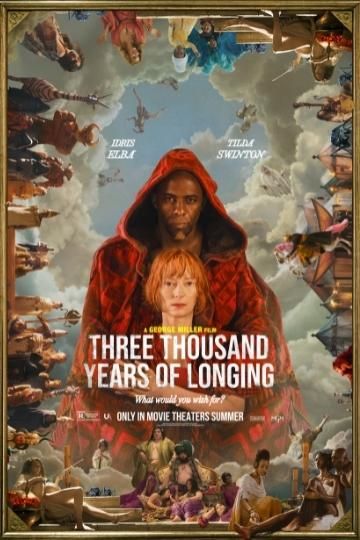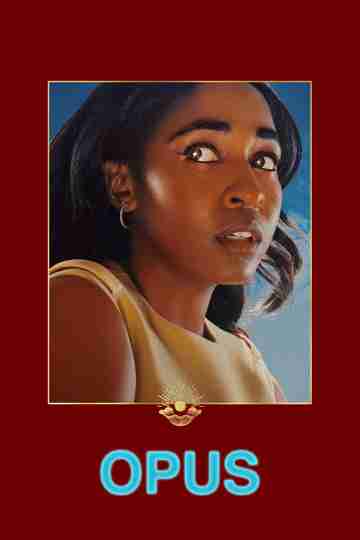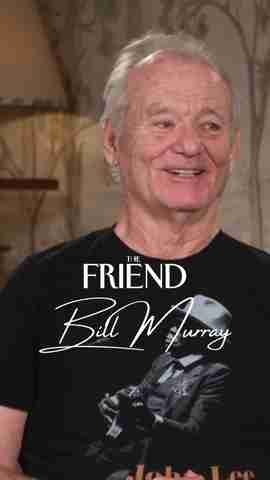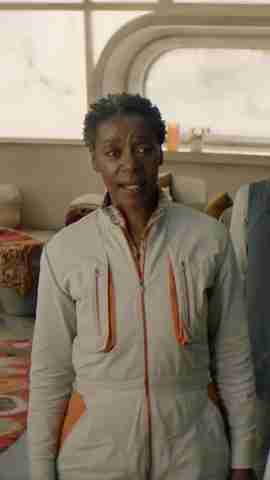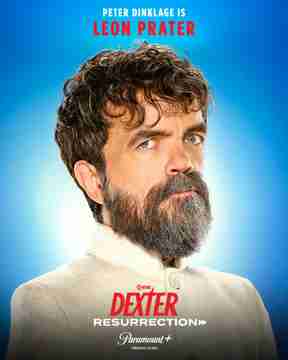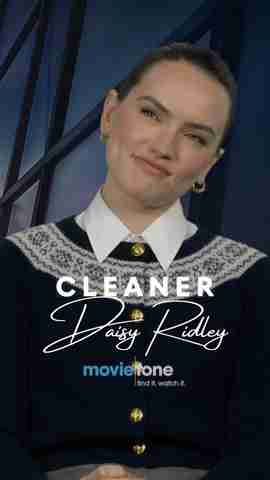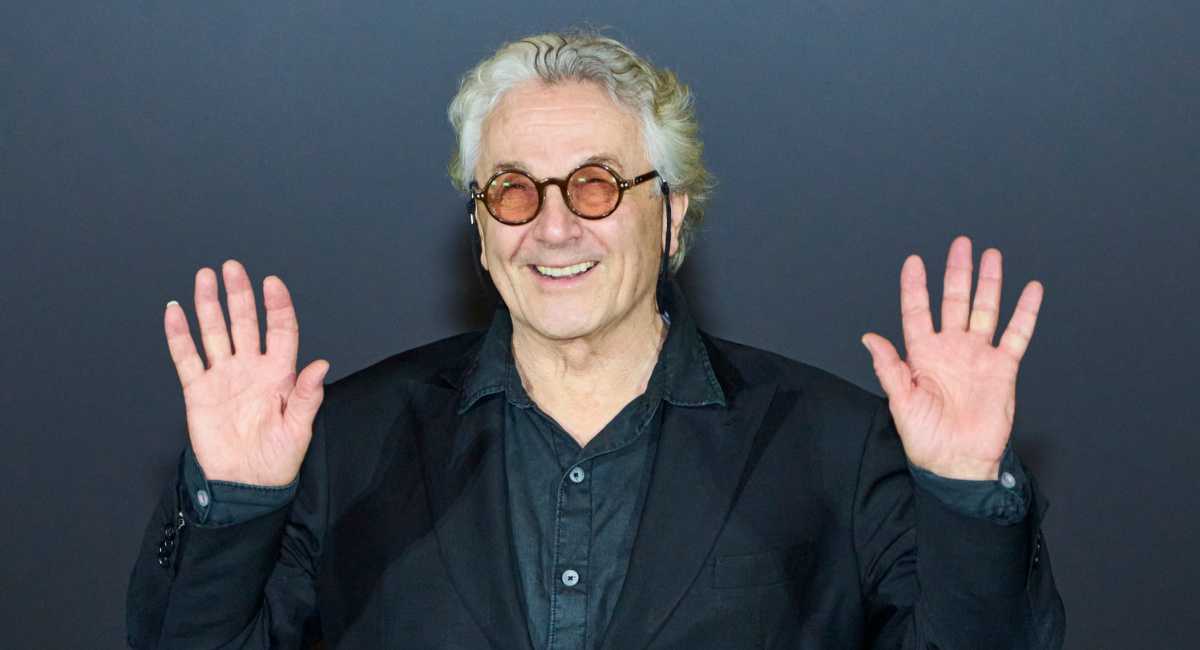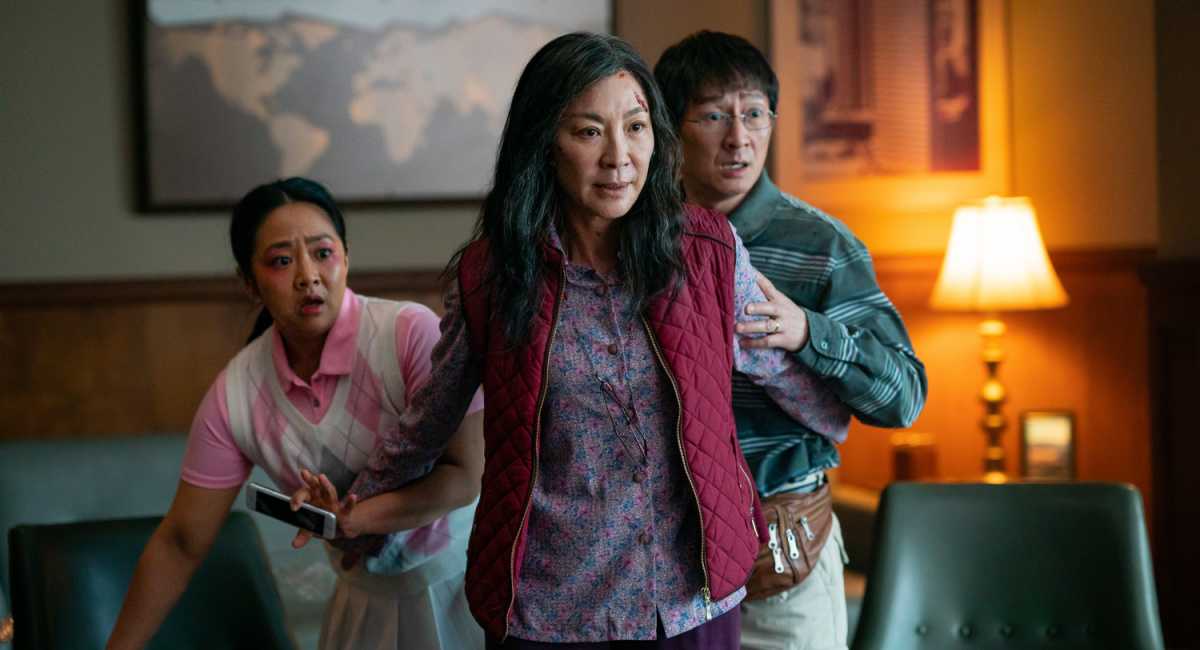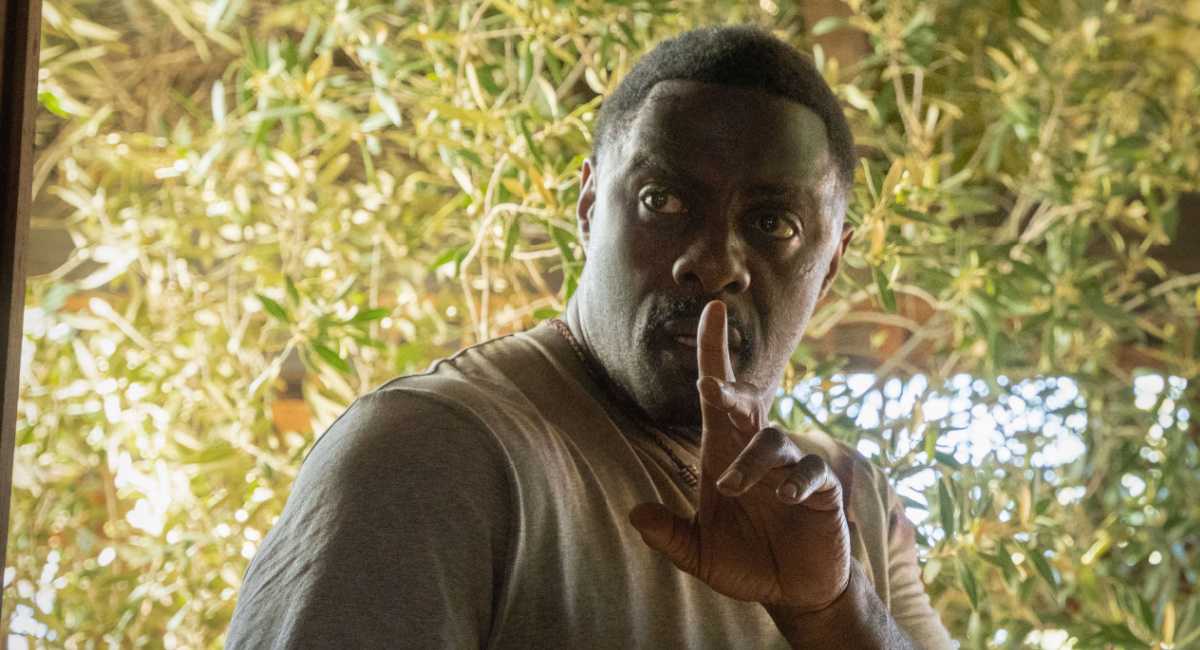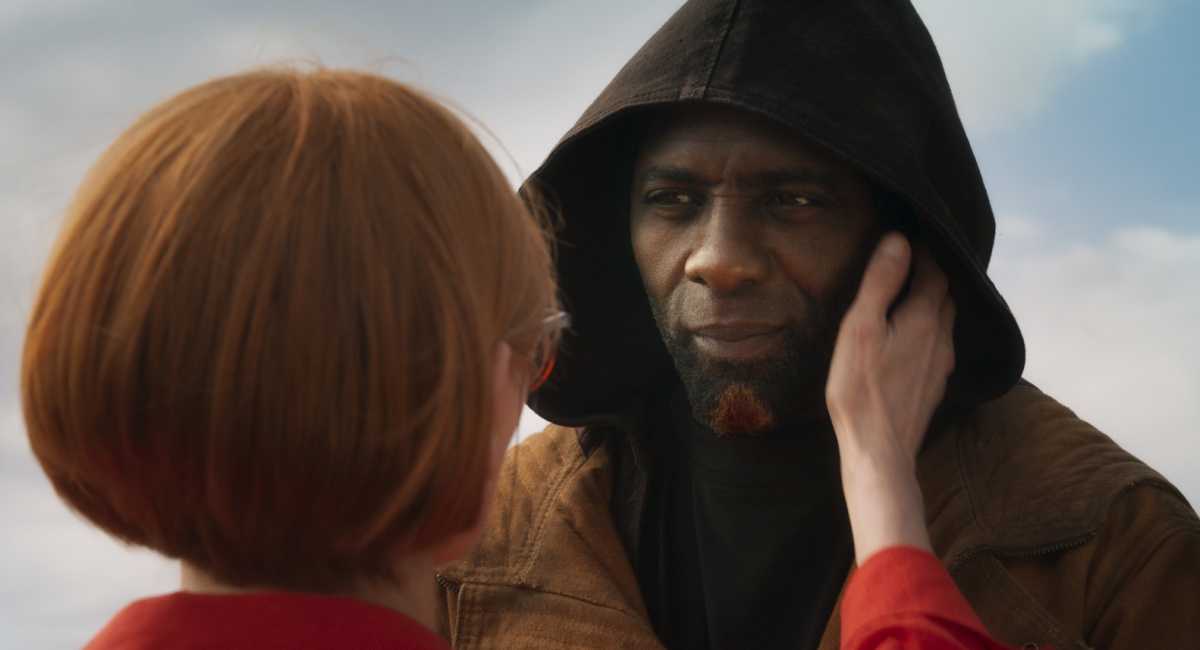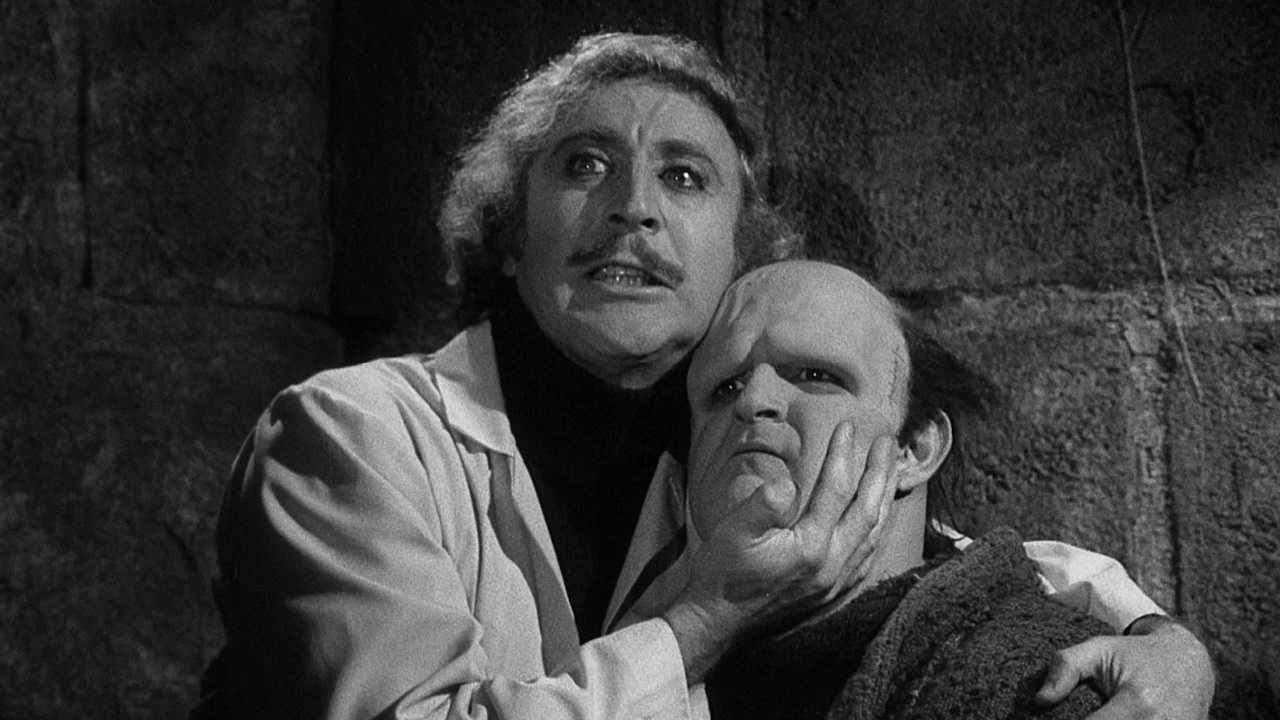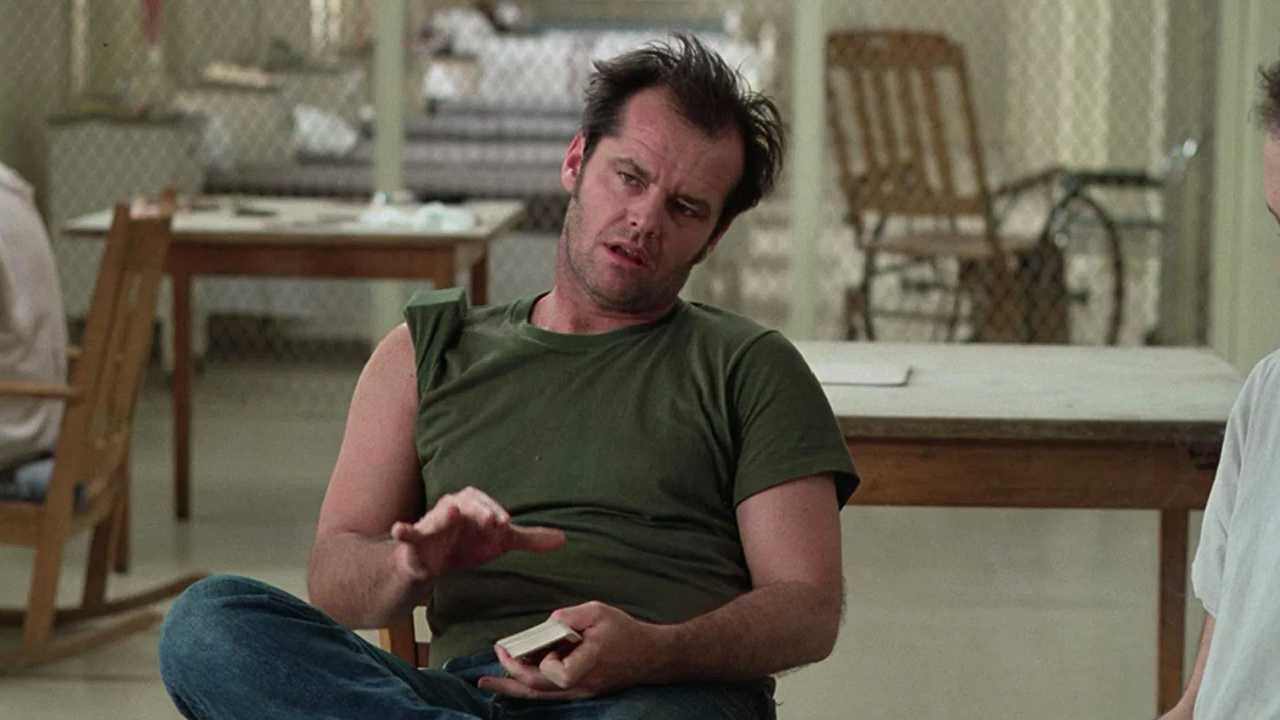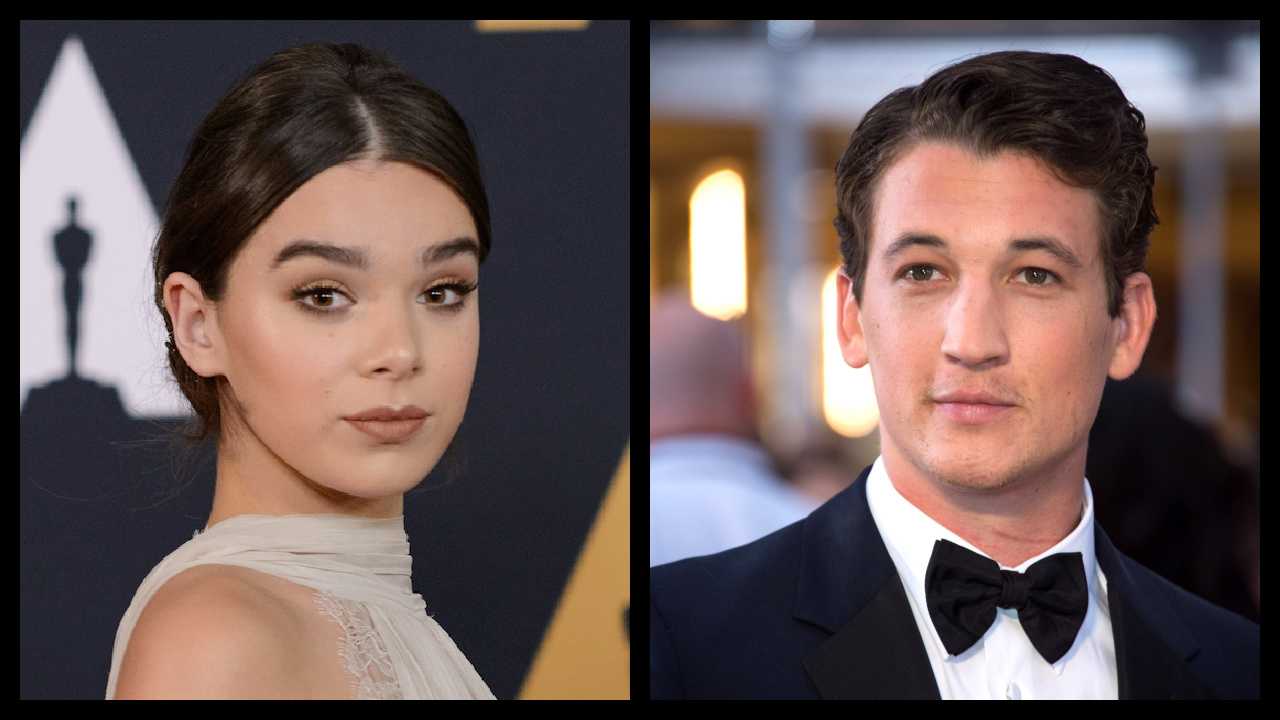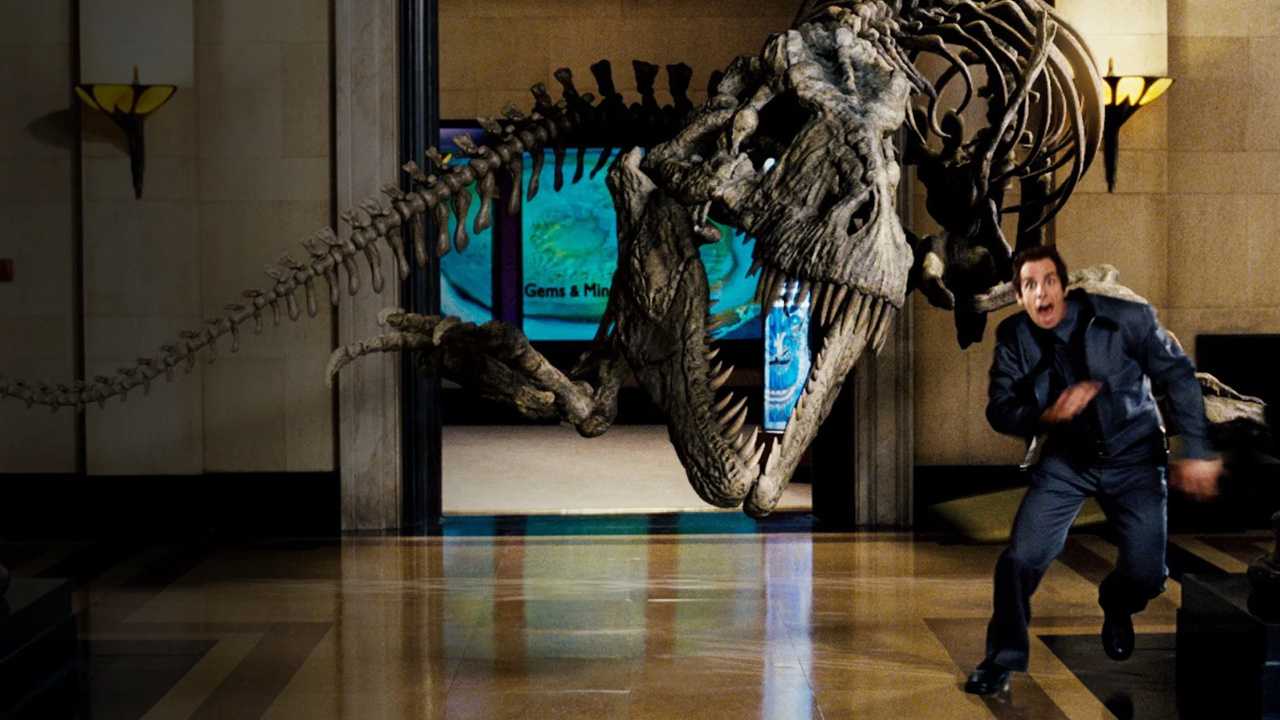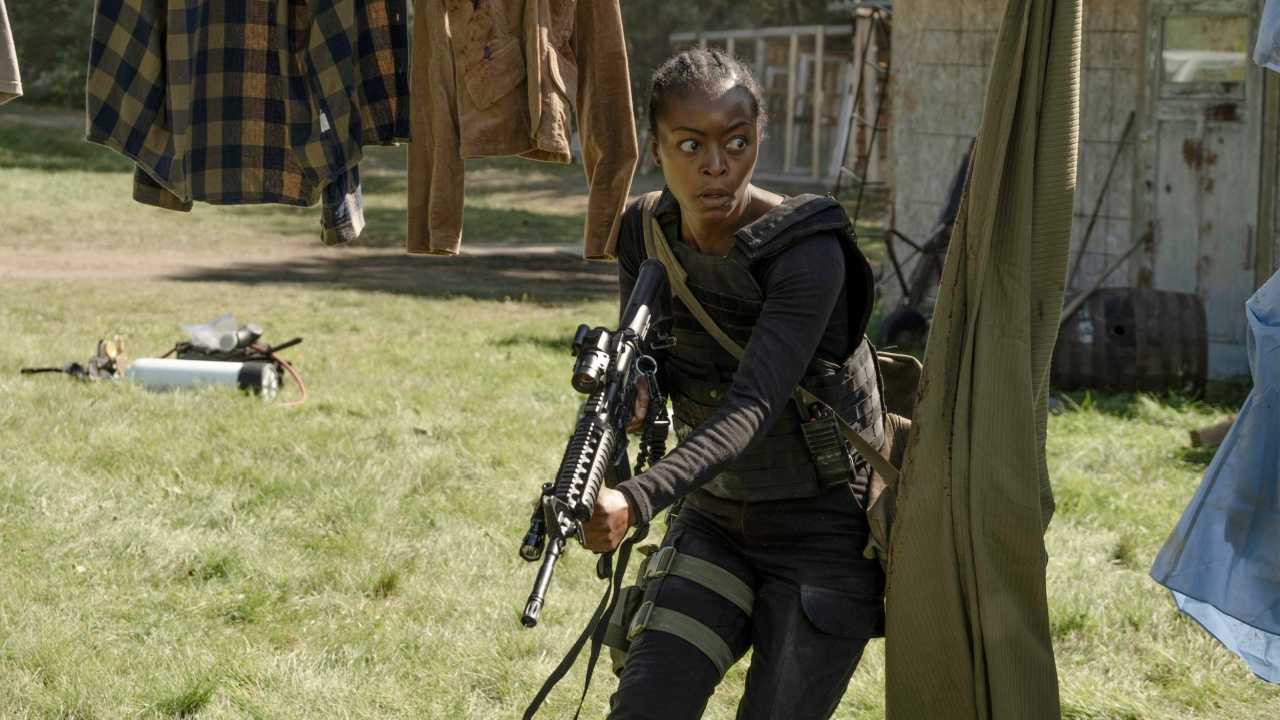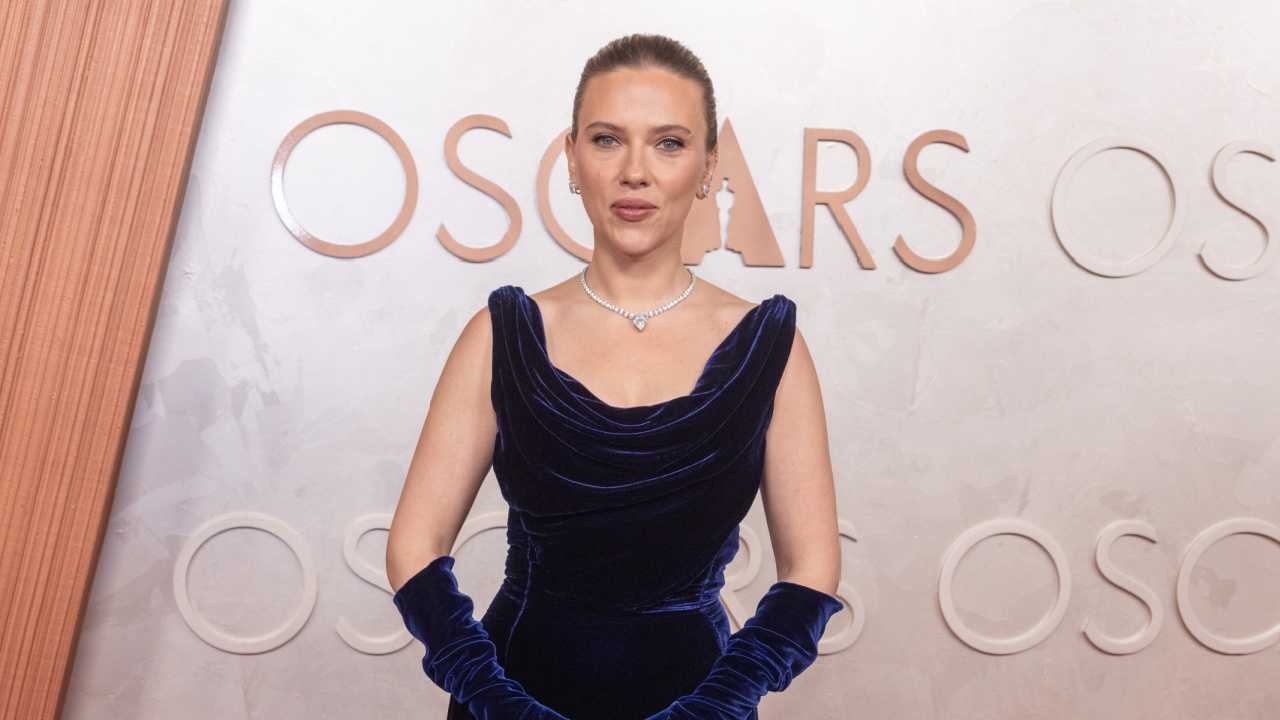Idris Elba and Tilda Swinton Discuss ‘Three Thousand Years of Longing’
Moviefone speaks with Elba and Swinton about their new film. "We wanted to approach this because it offered us an opportunity to play something we have not touched before."
Opening in theaters on August 26th is the new movie from director George Miller (‘Mad Max: Fury Road’) called ‘Three Thousand Years of Longing.”
The movie stars Oscar-winner Tilda Swinton (‘Michael Clayton’) as Alithea Binnie, a scholar that discovers a Djinn (Idris Elba) while visiting Istanbul. The genie offers Alithea three wishes, and when granted he will finally have his freedom. But with her knowledge of storytelling and history, Alithea is reluctant to take his offer and wants to know more about his past.
Moviefone recently had the chance to speak with Idris Elba and Tilda Swinton about their work on 'Three Thousand Years of Longing,’ their characters, and working with director George Miller.
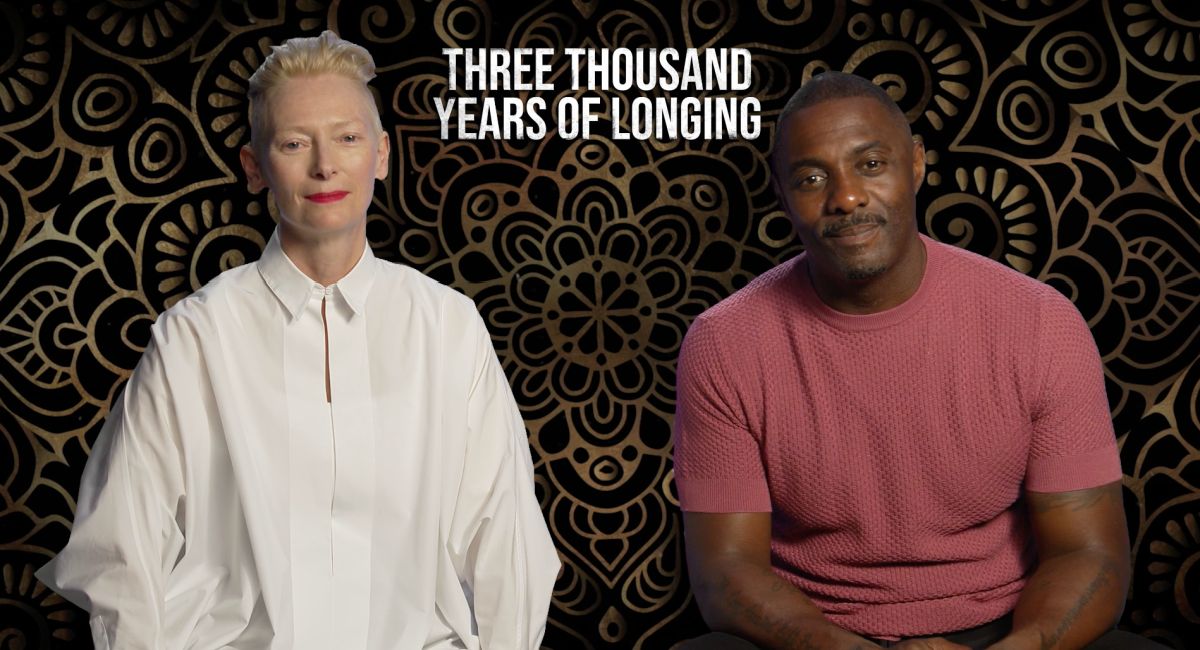
Tilda Swinton and Idris Elba star in director George Miller's ‘Three Thousand Years of Longing.'
You can read the full interview below or click on the video player above to watch our interview with Elba and Swinton.
Moviefone: To begin with, Tilda, because of Alithea’s education and her knowledge of stories, she has a very interesting approach to dealing with meeting a genie and being granted three wishes. Could you talk about how she approaches and deals with Djinn?
Tilda Swinton: I think in the first case, when she approaches the Djinn, she's someone who declares very early, she's someone who finds emotion through stories. She's totally geared to stories. She's a reader, she reads through her fingers very fast and she remembers everything she's ever read. She has almost a supernatural capacity with story, it's like her medium. I think when he starts to tell her these stories, she's with it. She feels, “I know how to do this, I know how to listen to someone else's story.”
What she's not prepared for is for these stories to change her. To not just draw her in because she's used to that as well, she's used to being absorbed in other people's stories, but he changes her and his predicament. The predicament that he's found himself in moves her. In a way she morphs, and I find that very touching that someone who's set herself up to be so complete finds something really opening in her.
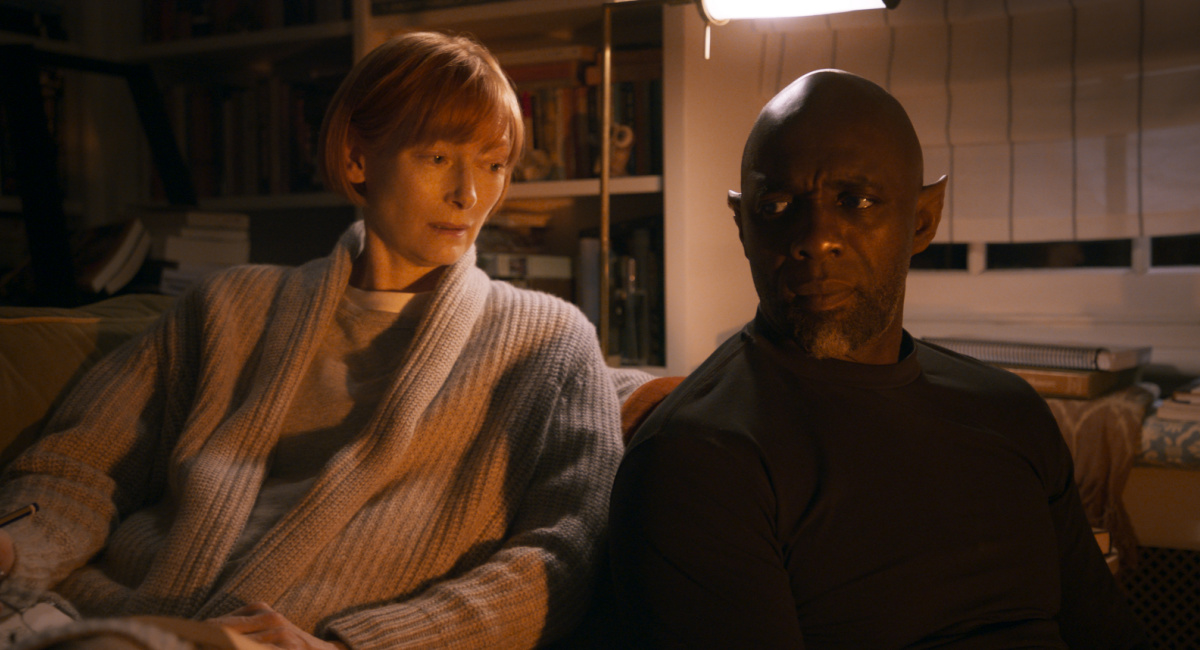
(L to R) Tilda Swinton stars as Alithea Binnie and Idris Elba as The Djinn in director George Miller’s film 'Three Thousand Years of Longing.' A Metro Goldwyn Mayer Pictures film.Photo credit: Courtesy of Metro Goldwyn Mayer Pictures Inc. © 2022 Metro-Goldwyn-Mayer Pictures Inc. All Rights Reserved.
MF: Finally, Idris, can you talk about your approach to playing this fantastical character and the way you were able to humanize him and give a very layered performance?
Idris Elba: It was definitely part of the reason, I think for both of us, we wanted to approach this film because it offered us an opportunity to play something we may not have touched before. Tilda said, she's often played the immortal demi-god and incredibly big characters. I've often played the grounded, tough guy and someone that people can try and relate to his emotions. But in this case, we both played the opposites of those characters.
My character obviously comes with some tropes. We've seen some version of this character in some form of storytelling before, but George, Tilda, and I were just determined to try and peel the onion back even further and see what else is there? What else could we offer?
Here we found this character, and he's traumatized. At the junction he comes out in that space in Istanbul in that hotel room, he is traumatized. This is a traumatized being, or spiritual being. I think it was really important that the audience had a sense of that. Despite the magic, the size and the gold ears, the trauma, the human story, that was important I think for the audience to grasp onto in order for this story to work really well. I'm really thankful that people resonate with the portrayal.
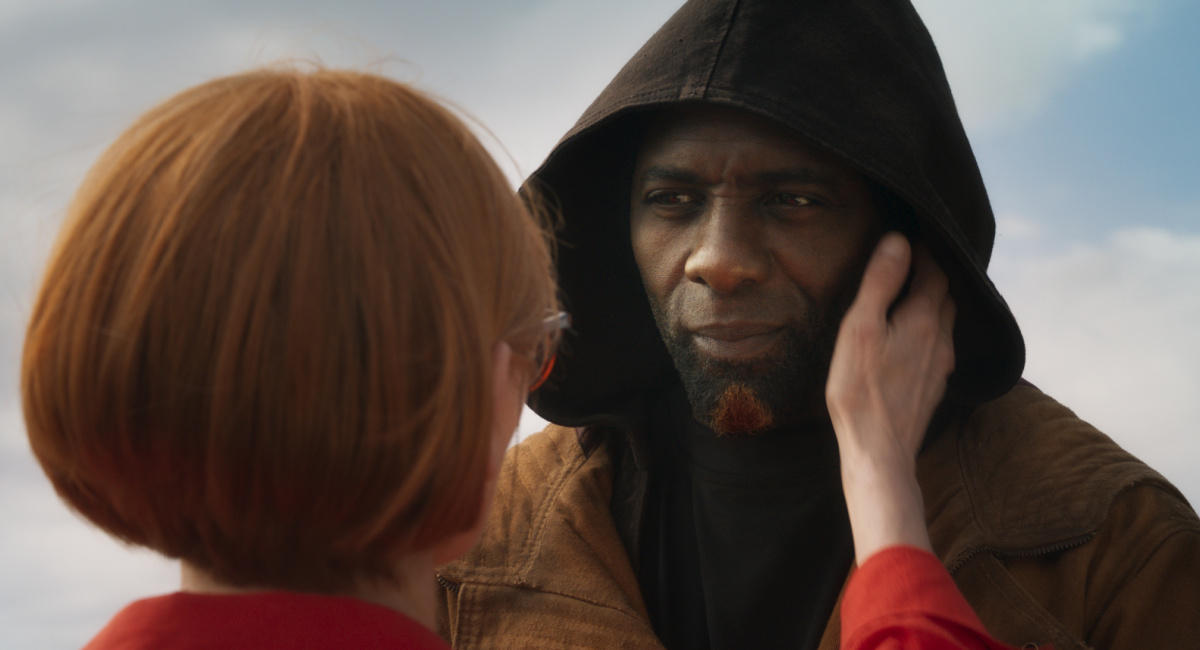
(L to R) Tilda Swinton stars as Alithea Binnie and Idris Elba as The Djinn in director George Miller’s film 'Three Thousand Years of Longing.' A Metro Goldwyn Mayer Pictures film.Photo credit: Courtesy of Metro Goldwyn Mayer Pictures Inc. © 2022 Metro-Goldwyn-Mayer Pictures Inc. All Rights Reserved.
